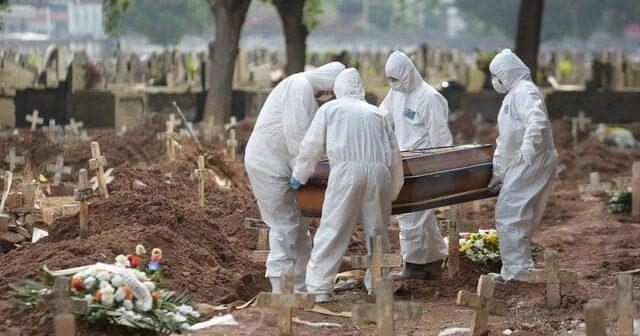

Brazil has now become the global epicentre of the pandemic. The number of deaths are in excess of 3,000 a day and new cases are regularly in excess of 70,000. Due to the lack of preventative measures put in place by the federal government and the slow pace of the country’s vaccination programme, the crisis will continue to escalate leading to untold suffering and potentially jeopardising the fight against coronavirus across the world.
To make matters worse, Brazil has seen the emergence of a new variant which is more transmissible, as well as up to 61% more capable of reinfecting those already infected with an earlier strain of the virus. This strain also appears to be causing serious health problems in people aged between 18 and 45 at a much higher rate than earlier strains.
Much of the blame lies at the feet of the far-right President, Jair Bolsonaro, who has frequently minimised the pandemic, telling citizens that coronavirus is just a “little flu” and that people should “stop whining”. He even vetoed a law that made it mandatory to wear masks in schools, shops and prisons.
As a result, the healthcare system in the country is now on the verge of complete collapse. Intensive Care Units across the country, in both public and private hospitals, are now at or near capacity.
The Root of the Problem
Brazil is a highly urbanised nation, around 85% of the population live in crowded cities. There are extreme levels of inequality, with the top 5% of the population having the same income as the remaining 95%. The 6 richest men have the same wealth as the poorest 100 million people.
The health and economic impacts of the pandemic are especially magnified by the millions living in favelas. These are often densely populated and lack adequate sanitary infrastructure. They also tend to be situated further away from essential services such as supermarkets, pharmacies and hospitals. Around 40% of the population are informally employed, without access to labour protections such as sick leave and redundancy. Favela residents are also more likely to suffer from underlying health problems and are less likely to have private health insurance.
There are estimated to be around 25,000 homeless people living on the streets of São Paulo, out of necessity these people often share mattresses, food and access to water sources and cannot easily social distance or carry out other preventative measures.
For a General Strike
Only the forces of the organised working class have the power to avert this crisis. A movement needs to be built in the workplaces and favelas that can offer effective resistance to the murderous policies of Bolsonaro and his right-wing clique. All non essential work needs to be shut down in a general strike that can bring down the crisis ridden government. Essential industries need to be taken under workers’ control to ensure safety measures are enforced. An extraordinary tax on the rich should be demanded to fund a programme of public works in the favelas and to ensure that all workers are paid until the cases can be brought under control.
Resolving the combined political, health and economic crises will require a broader perspective. The working class must organise to seize power, under the banner of revolutionary communism, so that necessary measures to save lives can be put in place with adequate financial support. This will require the expropriation of the parasitic capitalist class, so that their resources can be distributed to those that need them most.